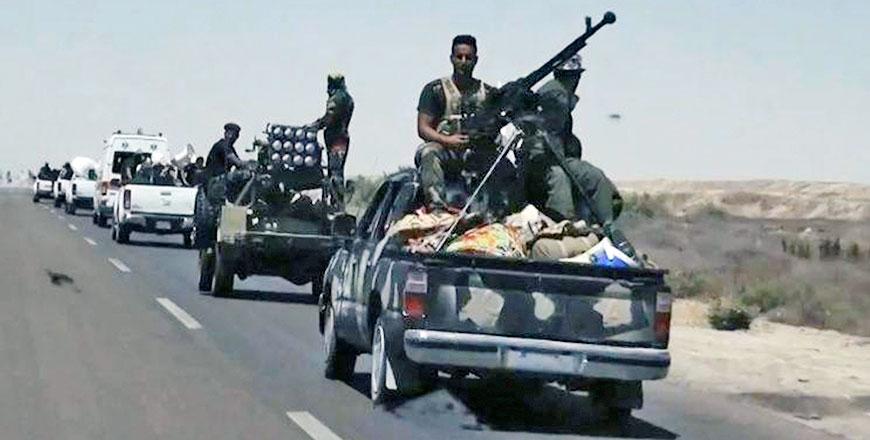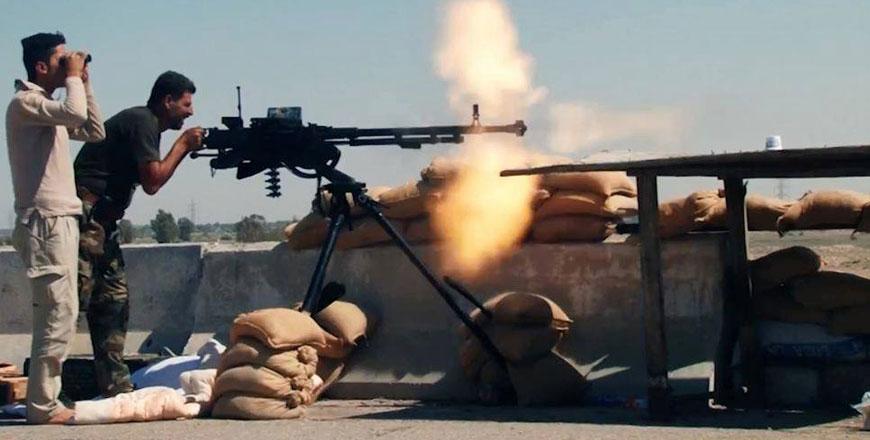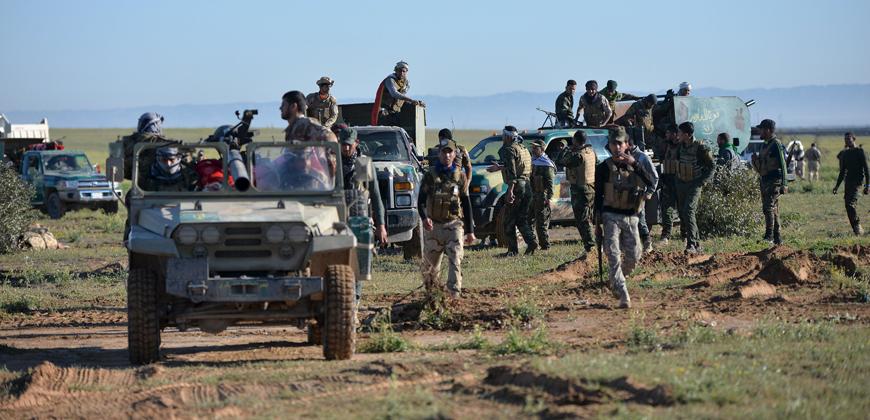You are here
Iraq launches offensive to drive Daesh from biggest province
By Reuters - Jul 14,2015 - Last updated at Jul 14,2015

Iraqi security forces backed by Shiite and Sunni pro-government fighters prepare to attack Daesh terror group positions in Fallujah, 50 kilometres west of Baghdad, Iraq, Monday (AP photo)
BAGHDAD — Iraqi troops and Shiite Muslim militia forces attacked Daesh militants on several fronts on Monday in Anbar, the country's largest province, at the start of what is likely to be a long and fiercely contested offensive.
A spokesman for the joint operations command said the campaign, which began at dawn, brought together the army, mainly Shiite Hashid Shaabi militias, special forces, police and local Sunni Muslim tribal fighters.
"At 5 o'clock this morning operations to liberate Anbar were launched," the spokesman said.
Military sources in Anbar said they met heavy resistance from the insurgents, who deployed five suicide car bombs and fired rockets to repel their advance on the city of Fallujah, about 50km west of Baghdad.
Iraqi forces also pushed towardsa the provincial capital Ramadi from the west and the south, police sources in the province said. Daesh supporters said those advances were repelled by the militants.
The sprawling Sunni Muslim province extends hundreds of kilometres west of Baghdad. Many of the towns and cities that line the banks of the Euphrates, snaking down from the Syrian border, are Daesh strongholds.
Daesh’s capture of Ramadi two months ago marked the biggest defeat for the Baghdad government, since the militants swept through the north of the country last June and declared a “caliphate” in parts of Syria and Iraq straddling the border.
Until Ramadi’s fall, Iraqi troops and Hashid Shaabi forces, backed by US-led air strikes, had been pushing Daesh back, recapturing the eastern province of Diyala and former leader Saddam Hussein’s home town of Tikrit, with the ultimate target of retaking the northern city of Mosul.
Prime Minister Haider Al Abadi, angered at the army’s withdrawal from Ramadi in mid-May, initially promised a swift counter-attack.
Although Ramadi remains the strategic target, military sources and Shiite militia leaders have said the initial focus will be on Falluja, which was the first city in Iraq to fall under militant control 18 months ago.
First jets arrive from US
A US-led coalition of Western and Arab air forces has been bombing Daesh positions across Iraq, supporting Baghdad’s ground forces and its poorly equipped air force.
Iraq has sought to redress its own lack of air power by purchasing F-16 fighter jets from the United States, but deliveries of the 36 aircraft were delayed because of security concerns after the Daesh offensive last summer.
On Monday, a first batch of four F-16s landed at Balad Air Base north of Baghdad, an Iraqi air force officer said.
It was not clear whether the planes would take an immediate role in the operations in Anbar.
Hadi Al Ameri, commander of the largest Shiite force, the Badr Organisation, told Iraqi television on Sunday he expected the main assault on Falluja to take place after the Eid holiday, which starts later this week.
Residents in Falluja and Ramadi reported heavy bombardment of both cities early on Monday.
Falluja saw the fiercest fighting of the US occupation which followed Washington’s 2003 invasion to topple Saddam, and has also been a centre of Sunni hostility to the Shiite-led government in Baghdad.
Abadi initially sought to keep Shiite militias on the sidelines in Anbar for fear of inflaming sectarian sensitivities, but the fall of Ramadi in May undermined his position.
In Baghdad on Sunday at least 35 people were killed in a series of car bombs and suicide attacks in mainly Shiite districts. A statement in the name of Daesh, issued on Monday, claimed responsibility for some of the blasts.
Related Articles
BAGHDAD/BEIRUT — After only modest gains in the first few weeks of their drive to retake Anbar province, Iraqi government forces have given
ERBIL, Iraq/WASHINGTON — Iraqi Shiite militia fighters are tightening a noose around the Daesh-held city of Fallujah west of Baghdad a
BAGHDAD - Iraqi security forces and Shiite militia began an operation on Tuesday to dislodge Daesh militants from desert areas northwest of


















